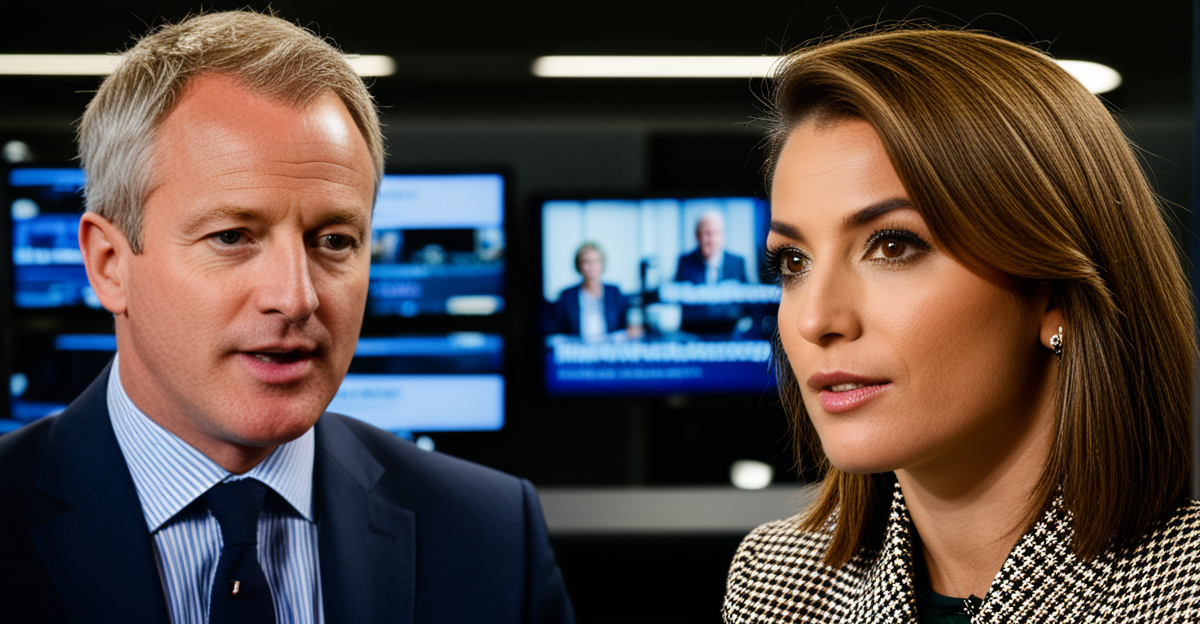Overview of Diversity Initiatives Among UK Broadcasters
Diversity initiatives within UK broadcasters have become a strategic priority, reflecting a commitment to enhancing representation and inclusivity across newsrooms. Major players like BBC, ITV, Channel 4, and Sky News have publicly declared their dedication to improving UK broadcasters diversity by implementing comprehensive newsroom policies.
These diversity initiatives typically focus on multiple key areas: recruiting talent from underrepresented groups, promoting equal opportunity within the workforce, and fostering an inclusive newsroom culture. The scope of these strategies extends beyond simple hiring practices; they involve mentorship programmes, targeted training, and policy reforms that aim to dismantle systemic barriers.
In the same genre : Why Has the UK Experienced Such a Rise in Political Protests?
The industry context highlights growing recognition that diverse newsrooms lead to richer editorial perspectives and more representative storytelling. Motivated by both social accountability and audience expectations, UK broadcasters view diversity as essential to maintaining credibility and relevance. This drive also responds to broader societal conversations about equity and fairness, ensuring that newsroom policies evolve to match changing demographics and values.
In summary, the current diversity initiatives among UK broadcasters encompass newsroom policies crafted to increase inclusivity at every level, from recruitment to editorial decision-making, establishing groundwork for meaningful and sustained change.
Also read : What role does technology play in UK financial services?
Notable Policies and Programmes Implemented
UK broadcasters have introduced key diversity policies designed to address imbalances and foster inclusivity within their newsrooms. The BBC, ITV, Channel 4, and Sky News have each established targeted initiatives that go beyond surface-level commitments, focusing on tangible diversity recruitment and retention strategies.
For instance, recruitment programmes specifically aim to attract candidates from underrepresented ethnic groups, women, and people with disabilities. These include outreach efforts at universities and community organisations, aiming to widen the talent pool. Alongside recruitment, many broadcasters have implemented mentoring schemes that pair junior staff from diverse backgrounds with experienced reporters or editors, which supports career progression and workplace integration.
Internal newsroom policies emphasize equal opportunity through clear guidelines that prevent discrimination, encourage fairness in promotion, and foster an environment where diverse voices can thrive. These policies also include provisions for flexible working arrangements and materials to raise awareness of unconscious bias among staff. Collectively, these programmes align with broadcasters’ ambitions to create genuinely inclusive workplaces where staff diversity translates into richer editorial content.
By embedding these diversity policies and newsroom programmes into their organisational structures, UK broadcasters demonstrate a commitment to systematic change, addressing not only recruitment but also professional development and cultural transformation.
Progress Reporting and Industry Impact
UK broadcasters regularly publish progress reports that detail advances in newsroom diversity, providing transparency and accountability. These reports include up-to-date diversity statistics, which track representation of ethnic minorities, women, and other underrepresented groups within editorial and production teams. For example, annual disclosures by the BBC and Channel 4 highlight incremental increases in staff diversity compared to previous years.
These progress reports quantify changes in newsroom representation, demonstrating how diversity initiatives tangibly reshape workforce composition. Improvements are measured not only in hiring but also in retention and promotion rates among minority groups. This data-driven approach allows broadcasters to evaluate the efficacy of their newsroom policies and identify areas needing further focus.
Furthermore, the increased diversity in personnel has positively influenced editorial perspectives, enriching content with more varied viewpoints. Enhanced representation ensures news coverage better reflects the UK’s multifaceted society. Thus, diversity initiatives are linked directly to improvements in journalistic quality and audience engagement, underscoring their strategic importance within the broadcasting industry.
Training and Development for Inclusive Newsrooms
Effective diversity training is a cornerstone of UK broadcasters’ efforts to cultivate inclusive newsrooms. These programmes are designed to educate journalists and editorial staff about unconscious bias, cultural competence, and equitable reporting practices. Through regular workshops and interactive modules, broadcasters equip their teams with the skills to recognize and mitigate biases, fostering more nuanced and fair storytelling.
Beyond general training, targeted journalist development initiatives focus on supporting minority staff through leadership and career advancement programmes. These leadership schemes nurture talent from underrepresented backgrounds, helping prepare them for senior editorial roles. By investing in such development, broadcasters ensure that newsroom decision-making better reflects diverse perspectives, contributing to more inclusive content.
Creating an inclusive newsroom culture also requires consistent efforts to embed diversity values into everyday practices. Initiatives such as inclusive editorial meetings, diverse sourcing guidelines, and forums for staff feedback help maintain a workplace where all voices are heard and respected. This culture-building complements formal training by promoting ongoing awareness and collaboration around diversity.
Collectively, these training and development efforts play a pivotal role in strengthening UK broadcasters’ commitment to diversity. They not only elevate individual competencies but also transform the newsroom environment, making it more open, representative, and responsive.
Ongoing Challenges and Critical Perspectives
Despite substantial progress, diversity challenges persist across UK broadcasters’ newsrooms. Equality advocacy groups frequently highlight areas where newsroom criticism reveals gaps between stated goals and actual outcomes. For example, underrepresentation of certain ethnic minorities remains notable at senior editorial levels, suggesting that recruitment efforts must be complemented by improved retention and promotion practices.
Structural obstacles also hinder the full realization of inclusivity ambitions. Organisational frameworks can inadvertently reinforce existing hierarchies, limiting access for diverse talent to decision-making roles. Further, some newsroom policies have been critiqued for lacking robust mechanisms to address unconscious bias or for insufficiently supporting employees facing systemic barriers.
Calls for increased transparency and stronger accountability frameworks are common within critiques of broadcaster diversity. Stakeholders urge UK broadcasters to move beyond annual reports, advocating for clear, measurable targets with consequences for unmet diversity commitments. This includes enhanced training programmes tailored to tackle deep-seated organisational cultures that resist change.
Addressing these ongoing challenges requires sustained effort and adaptive strategies that respond to evolving diversity initiatives. Broadcasters must engage with internal and external critiques constructively while fostering environments that genuinely empower all staff. Only by recognizing and confronting these obstacles can inclusive newsrooms become a lasting reality rather than a policy aspiration.
Leadership Voices and Stakeholder Perspectives
UK broadcasters’ progress in diversity initiatives is frequently articulated through the voices of key industry leaders and senior executives who underscore the strategic importance of newsroom diversity. These leaders consistently emphasize that authentic inclusivity enriches journalistic integrity and audience connection. For example, diversity officers highlight the necessity of embedding diversity values across all organisational levels to realize sustained cultural change, rather than limiting efforts to recruitment alone.
Journalists and editorial staff from diverse backgrounds also provide valuable diversity perspectives, often sharing firsthand experiences of workplace inclusion or exclusion. Their insights reveal both successes in mentorship and training programmes and areas where further enhancement is needed. This feedback loop ensures that diversity initiatives remain responsive and grounded in real newsroom dynamics.
Recognition from external bodies further validates broadcasters’ commitments. Industry awards acknowledging diversity leadership encourage broadcasters to maintain momentum and innovate in their newsroom policies. Collectively, these leadership voices and stakeholder perspectives create a multifaceted narrative that strengthens the credibility and impact of UK broadcasters’ diversity endeavours.






